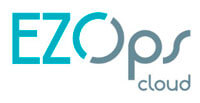Introduction: The Power of Docker and WordPress Integration
The integration of Docker and WordPress presents a compelling solution for developers seeking streamlined development, deployment, and management of WordPress applications. By leveraging the capabilities of Docker containers, developers can enhance portability, scalability, and consistency within their WordPress environments.
Understanding Docker: A Game-Changer for Development and Deployment
Docker’s containerization technology revolutionizes the way applications are developed, shipped, and run. By encapsulating applications and their dependencies into containers, Docker provides a consistent environment across different infrastructure, eliminating the infamous “it works on my machine” scenario and simplifying the deployment process.
WordPress in Docker: Streamlining Development Environments
Running WordPress within Docker containers empowers developers to create isolated, reproducible development environments. This approach ensures that each developer works with a consistent setup, minimizing configuration discrepancies and enabling seamless collaboration across teams working on WordPress projects.
Dockerizing WordPress Plugins and Themes: Ensuring Portability and Scalability
Containerizing WordPress plugins and themes allows for easier distribution and deployment. By encapsulating these components in Docker containers, developers can ensure their portability across different environments and effortlessly scale them as the application’s demands evolve.
Container Orchestration with Docker Compose: Simplifying WordPress Deployment
Docker Compose provides a straightforward way to define and run multi-container Docker applications. Leveraging Docker Compose for WordPress deployment streamlines the management of related services, such as the WordPress application itself, a database, and any additional services, allowing for efficient orchestration of the entire application stack.
Optimizing Performance with Docker Swarm: Scaling WordPress Effortlessly
Docker Swarm enables the creation of a cluster of Docker hosts, simplifying the scaling and management of containerized applications. Utilizing Docker Swarm for WordPress deployment empowers developers to effortlessly scale their WordPress instances, ensuring optimal performance as traffic and workload demands fluctuate.
Securing Your Dockerized WordPress Environment: Best Practices and Considerations
Securing a Dockerized WordPress environment involves implementing best practices such as regularly updating containers and dependencies, restricting network access, and managing sensitive data securely. By following these considerations, developers can fortify their Dockerized WordPress setup against potential security threats.
Monitoring and Logging in Dockerized WordPress: Insights for Effective Management
Effective monitoring and logging are crucial for overseeing the health and performance of Dockerized WordPress environments. By leveraging Docker’s built-in monitoring features and integrating with logging solutions, developers can gain valuable insights into the behavior of their WordPress applications running in Docker containers, facilitating proactive management and troubleshooting.
Conclusion: Unleashing the Full Potential of Docker and WordPress Integration
In conclusion, the integration of Docker and WordPress offers developers a powerful approach to streamline the development, deployment, and management of WordPress applications. By understanding Docker’s capabilities, Dockerizing WordPress components, and employing container orchestration and security best practices, developers can unleash the full potential of this integration, paving the way for efficient and scalable WordPress deployments.
